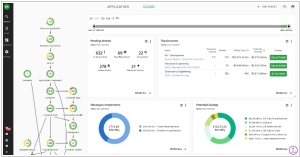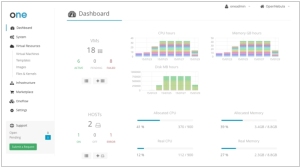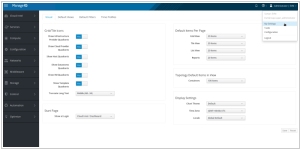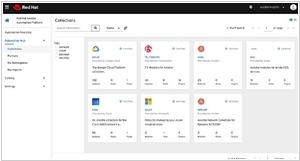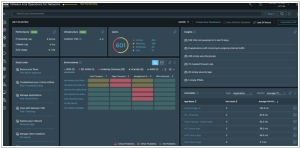Top 10 Cloud Management platforms
August 04, 2025 | Editor: Michael Stromann
14
Cloud Management platforms that allow to manage and optimize IT infrastructure across multiple clouds.
1
Flexera Cloud Portfolio Management accelerates application delivery, gives you control over cloud usage and spend, and ensures application SLAs. Cloud computing presents a new set of challenges as well as cloud solutions for IT. RightScale helps you best manage, govern, and optimize your cloud infrastructure and application portfolio.
2
IBM Turbonomic software uses AI to optimize the performance, cost and compliance of hybrid cloud and multicloud environments.
3
The Scalr Cloud Management Platform packages all the cloud best practices in an extensible piece of software, giving your engineers the head start they need to finally focus on creating customer value, not on solving cloud problems. Deploying infrastructure across multiple and largely incompatible cloud platforms? Scalr is a single pane of glass for all your cloud resources. It lets you access them through a single, unified, user interface.
4
Write infrastructure as code using declarative configuration files. HashiCorp Configuration Language (HCL) allows for concise descriptions of resources using blocks, arguments, and expressions.
5
Apptio's powerful, cloud-based platform provides actionable financial and operational insights that empower digital leaders to make data-driven decisions, realize value, and transform the business.
6
Red Hat CloudForms is an infrastructure management platform that allows IT departments to control users' self-service abilities to provision, manage, and ensure compliance across virtual machines and private clouds.
7
OpenNebula is an Open Source Cloud Computing Platform to build and manage Enterprise Clouds. OpenNebula provides unified management of IT infrastructure and applications, avoiding vendor lock-in and reducing complexity, resource consumption and operational costs.
8
Cloudability lets you monitor, manage and communicate your cloud costs with one easy tool. Give your finance, engineering and management teams the visibility they need into all of your cloud costs and usage. Eliminate surprises in your cloud cost and usage with daily updates and advanced alerts that show you when things change and when you need to dig deeper.
9
CloudCheckr's cloud management platform provides cost management, security, reporting and analytics to help users optimize their AWS and Azure deployments.
10
Morpheus is a leading cloud application management and orchestration platform designed from the ground up for truly agnostic cloud management. Morpheus gives developers, IT managers, and DevOps professionals full control over both VM and container-based systems across any cloud or infrastructure. 100% agnostic multi cloud management for Hybrid IT. Enable self-service provisioning and DevOps automation for VMware, Kubernetes, OpenStack, AWS, Azure, and more.
11
Densify provides visibility into your hybrid cloud and containers, and automates application resource selection—resulting in improved performance, stability, and lower cloud spend.
12
ManageIQ is an open source cloud management platform. Allows to manage containers, virtual machines, networks, and storage from a single platform
13
CloudBolt's hybrid cloud management platform enables enterprise IT departments to efficiently build, deploy, and manage private and public clouds.
14
Ansible is a suite of software tools that enables infrastructure as code. It is open-source and the suite includes software provisioning, configuration management, and application deployment functionality.
15
VMware Aria (formerly vRealize Cloud Management and CloudHealth by VMware Suite) is a unified management solution for cloud native applications and multi-cloud environments.
16
AWS CloudFormation is an infrastructure as code (IaC) service that allows you to easily model, provision, and manage AWS and third-party resources.
17
Jamcracker enables organizations to manage and deliver their own multi-cloud services as well as broker 3rd party providers'. IT organizations and service providers can now unify private, public and hybrid cloud consumption for their employees, customers and through their channels.
Important news about Cloud Management platforms
2022. Zesty lands $75M for tech that adjusts cloud usage to save money
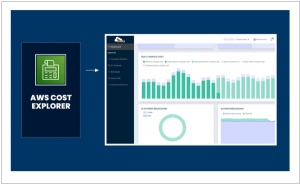
Zesty, which automatically scales cloud resources to meet app demands in real time, has closed a $75 million Series B round. At the core of Zesty is an AI model trained on real-world and “synthetic” cloud resource usage data that attempts to predict how many cloud resources (e.g., CPU cores, hard drives and so on) an app needs at any given time. The platform takes actions informed by the model’s projections, like automatically shrinking, expanding and adjusting storage volume types and purchasing and selling public cloud instances.
2022. Sync Computing rakes in $15.5M to automatically optimize cloud resources
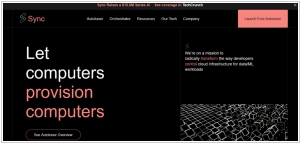
Sync Computing, a startup that claims to uniquely tie business objectives like cost and runtime reduction directly to low-level cloud infrastructure configurations, has landed $12 million. Sync doesn’t require much in the way of historical data to begin optimizing data pipelines and provisioning low-level cloud resources. For example, with just the data from a single previous run, some customers have accelerated their Apache Spark jobs by up to 80% — Apache Spark being the popular analytics source engine for data processing. Sync recently released an API and “autotuner” for Spark on AWS EMR, Amazon’s cloud big data platform, and Databricks on AWS. Self-service support for Databricks on Azure is in the works.
2021. Upbound nabs $60M to grow its open source Crossplane multi-cloud management project
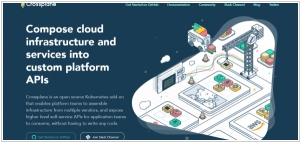
Crossplane that develops open source multi-cloud management tool has raised $60 million Series B. The project is fully cloud-native and is managed under the umbrella of the Cloud Native Computing Foundation (CNCF), which manages Kubernetes and other key open source cloud-native technologies. Crossplane allows users to pick and choose the cloud vendors they want to use — whether cloud infrastructure vendors like AWS, Microsoft and Google or cloud-native tooling like Elastic, Confluent, Databricks and Snowflake — and manage all of that from a single API.


